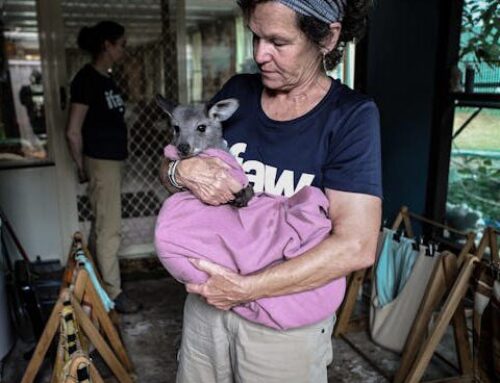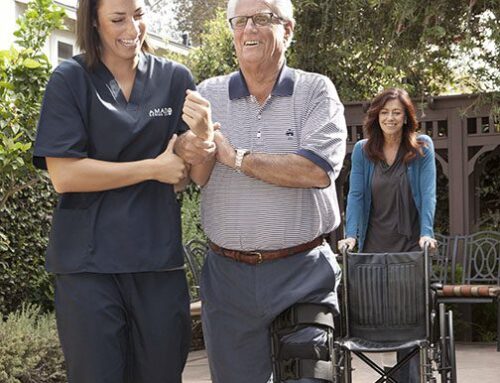In a world defined by supersizing, super models, superheroes, and Super Bowls, being a SuperAger carries its own kind of cachet. In fact, living in super mode may not be so far out of reach as it seems and more achievable than you think. So what exactly is a SuperAger, and if you don’t quite fit the bill, what steps can you take toward making sure your lifestyle supports aging as optimally as possible?
Better Genes Help SuperAgers’ Brains Age Well
Assessed with the brain and memory function of people decades younger, research shows neurons in the memory-storing part of SuperAgers’ brains, or entorhinal cortex, are somewhat larger in this aptly-named group. Scientists say the memory-boosting function of these larger cells represents longevity, as the cells may be stronger and more capable of sending signals to one another. Additionally, when brain volume loss was measured through magnetic resonance imaging, or MRI, SuperAgers lost less brain volume than others in this over-80 age group: 1.06% vs. 2.24%. So genetics seems to play a part in the way the brain ages.
According to James Giordano, PhD, professor of neurology and biochemistry at Georgetown University Medical Center, whether or not it is possible to access SuperAger benefits by adopting specific lifestyle choices is not a given. But genetics or otherwise, there is no downside to practicing good mental and physical habits that fortify us well into our 80s, 90s, and beyond. And interestingly, among the data collected on SuperAgers, there is one “habit” that may surprise you! Read on to find out what it is.
SuperAgers Gather No Moss
A sedentary lifestyle is good for plants, not humans. Physical activity equals life, i.e., increased oxygen intake, stronger bones and muscles which reduce fall risk, better heart function, circulation, and their benefits, and weight maintenance. The risk for developing Alzheimer’s or other forms of dementia increases as we age (tripling in those with a body mass index over 30), so enough can’t be said about exercise. Any form of exercise is better than none, so what do you like? We tend to stick with activities that give us pleasure. Swim or snowshoe. Walk often and briskly; hike with friends; join a gym and work with a trainer if desired; play golf or tennis or pickleball—gaining so much traction these days. As the expression goes, do whatever floats your boat. And speaking of boats, whether on the water or using a rowing machine found at many fitness facilities, rowing is a great cardio workout.
SuperAgers Defy the Doldrums
At 62, J.R.R. Tolkien published his first volume of Lord of the Rings. At 65, though suffering from a host of serious illnesses, Miles Davis recorded a live jazz album, topping the Billboard Jazz Albums chart. Barbara Hillary, cancer survivor, became one of the oldest persons to reach the North Pole at 75. John Glenn went into space at age 77. The oldest person to summit Mt. Rainier, at 14,411 feet, was Bill Painter: age 81. And what about President George HW Bush, skydiving to celebrate his 85th and 90th birthdays, vowing to do it yet again if he reached 95.
While these pursuits are not for everyone, they serve a powerful purpose by providing the kind of challenges that lift us out of what may be our daily routine — something many seniors consider unavoidable. But settling into a dull routine is not inevitable. And in the realm of challenges, experts say mental activity can be just as important as something physical, or better yet, incorporate both into your week. Using your skills to help kids learn to read better? Learning a foreign language you’ve always wanted to or better yet, one outside your comfort zone you’ve never even considered? If you can get out to do these things, go. If not, with the internet, so many opportunities are well within reach.
In fact, Leo Plass dropped out of college one semester before graduation in 1932 during the Great Depression. He was on track to teach, taking a higher paying job at a logging outfit due to hard times. At age 99, he finally completed his degree, receiving his diploma from Eastern Oregon University.
How about you? What’s in your quiver?
SuperAgers Step Out
Studies show that the larger neurons in the memory-storing regions of SuperAgers’ brains referenced earlier may also impact social processing and awareness. SuperAgers are known to have strong social networks, something said to be life-affirming for people as they age. Isolation on the other hand can cause depression with consequences that may impact physical health. It’s true we all need alone time, and solitary activities such as reading, gardening, cooking, etc. are enriching. Catching up with the day’s news on TV keeps us sharp. But if you tend to spend too much time alone in these pursuits, think about extending them to include others. Find or start a monthly book club to discuss a favorite tome over coffee and dessert. Invite a friend over to cook and enjoy a nutritious meal together. Find or organize a community garden where it takes a village to keep it going.
SuperAgers Toast the Occasion
Some research shows that people who indulge in an occasional glass of alcohol, i.e. moderate drinkers, including a study group of SuperAgers, were 23% less likely to develop Alzheimer’s disease or signs of memory problems than nondrinkers. This is not to imply that drinking is a prerequisite to SuperAging. Moderation in alcohol intake, as in most things, is key.
It’s a fact not all of us can be born with the genetic advantages of SuperAgers. But living each day with an eye toward maintaining what we have, and embracing improvement at every opportunity, will go a long way toward making the most of our time here. Human beings are living longer, the needle being inched up all the time. Why not continue to move in that direction making all the super choices you can!
“What is a SuperAger and How Can a Senior Level Up?,” written by Beth Herman.



